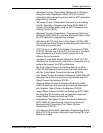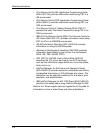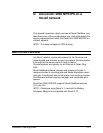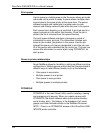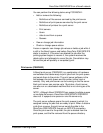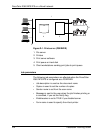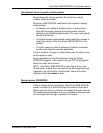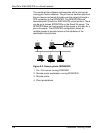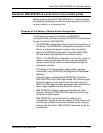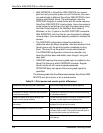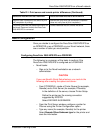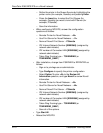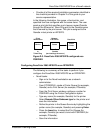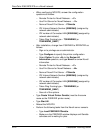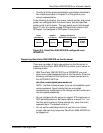
DocuColor 2060 NPS/IPS on a Novell network
Installation Planning Guide D-7
DocuColor 2060 NPS/IPS as a print server or as a remote printer
Before installing DocuColor 2060 NPS/IPS on a Novell network,
first determine whether you want the printing system to function
as a print server, or a remote printer.
Choosing a Print Server or Remote Printer Configuration
The following contrasts the Print Server (PSERVER)
configuration with the Remote Printer (RPRINTER) configuration
for your DocuColor 2060 NPS/IPS.
• The PSERVER configuration uses a licensed connection to a
File Server. The RPRINTER configuration connects to a Print
Server, and does not require a regular client connection.
• Using the PSERVER configuration, DocuColor 2060 NPS/
IPS can obtain job attributes from the Novell Queue.
NOTE: The RPRINTER configuration can’t do this, and this
leads to some irregularities, such as no job and submitter
names, as well as an inability to select duplex through the
submission interface.
• The setting of the Novell banner pages switch operates
successfully using PSERVER (this toggles the ElideHeader
attribute).
If Banner Page is requested with RPRINTER, DocuColor
2060 NPS/IPS prints a Novell-generated ASCII banner page
as the first page of a job, and will print the entire job as an
ASCII file (500 pages could be generated when requesting a
banner page regardless of the actual file contents.)
• With PSERVER, multiple copies are requested as a job
attribute; DocuColor 2060 NPS/IPS receives only one copy
and prints multiple copies.
With RPRINTER, since most remote printers can’t
understand a request for multiple copies, the Print Server will
send the job multiple times to print multiple copies, tying up
network and DocuColor 2060 NPS/IPS resources as the file
is processed.



